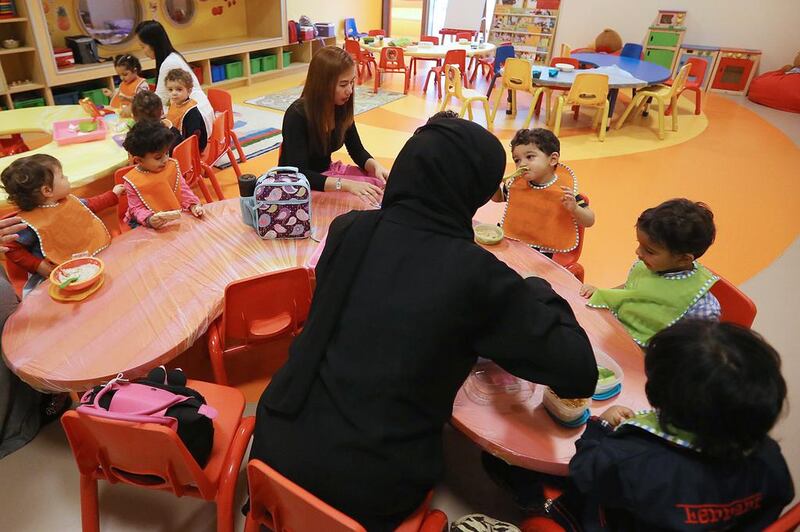SHARJAH // Although women in the UAE are given many opportunities to reach leadership positions, they still remain unaware of the many rights they have in the workplace, a student’s research project at the University of Sharjah concluded.
Aisha Zafar, 20, used the qualitative research of one of the university’s management academics, Dr Rachid Zeffane, to submit her paper to a student research competition at Abu Dhabi University.
The industrial engineering student, born and raised in the UAE with her Pakistani family, became interested in the topic after taking Dr Zeffane’s classes as electives.
“I was hearing how many opportunities there were for women here and that women don’t even realise they’re there and how it’s very different compared to other countries.
“I learnt about the 2008 law which states women can demand day-care centres at work, which applies to both locals and expatriates, and I had never heard this before.”
Ms Zafar said confidence was still lacking among young women, not least among the peers she spoke to for her paper.
“At university, the girls are not even married and are already talking about their kids and families,” she said.
“The encouragement needs to start at home, but without the awareness of how many rights women have to go out and reach these leadership positions, it makes it very hard.
“They lack confidence and this is the biggest challenge for women reaching leadership positions, not the lack of government support. There have been so many laws passed, but women need to educate themselves about these things.”
Ms Zafar, who grew up in Dubai, said things had improved greatly over recent years, not least with more positive role models, such as Sheikha Lubna.
“Now, even male-dominated areas are turning around,” she said.
In her course, there are more women than men, something previously unheard of in engineering.
Although there are some mentorships at universities, she said, more were needed in the community, as well as support groups to empower women, enabling them to take more risks.
Dr Zeffane's 2012 study of more than 500 students enrolled in business courses, entitled Gender and Youth Entrepreneurial Potential: Evidence from the United Arab Emirates, was published in the International Journal of Business and Management last year.
“Young women do not lack potential to be leaders or entrepreneurs,” he said. In his study, 59 per cent of respondents were female.
“Confidence and belief in their capabilities could be the main barrier,” he added. “Also, women tend to take less risks than their male counterparts and are less likely to venture into new business territories.”
Cultural issues, however, still play a role.
“Because the leadership scene, in business at least, is by and large male dominated, young females are less accustomed or prepared to face situations of women in leadership roles.
“They are thus less inclined to seek leadership roles. Also, women in general tend to be less risk-taking.”
mswan@thenational.ae






